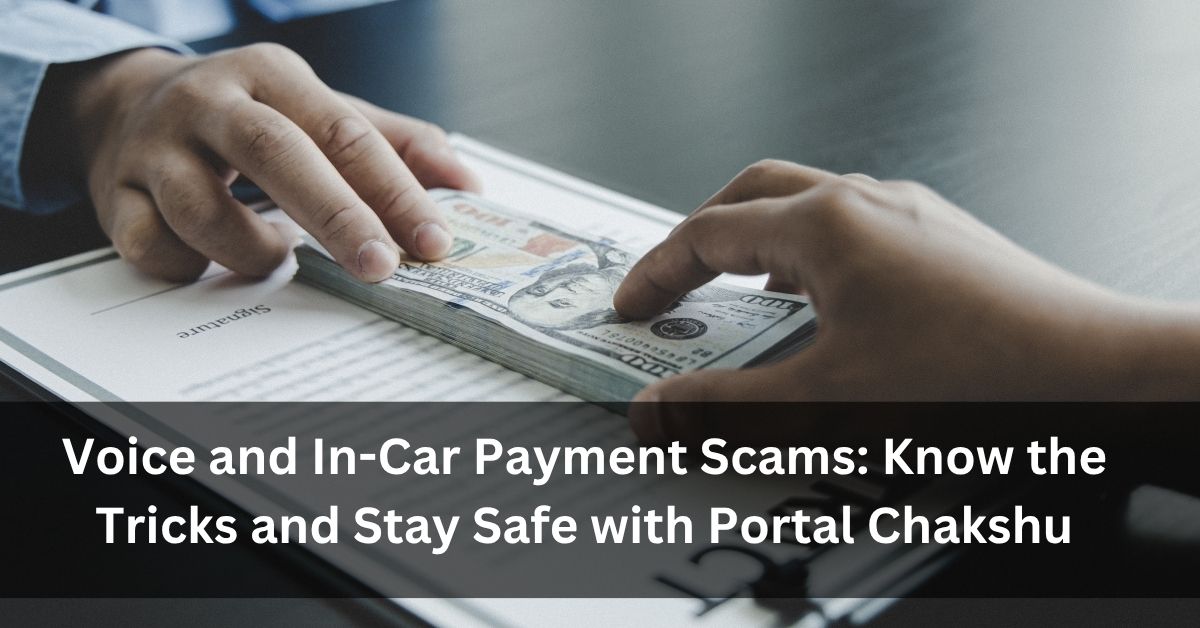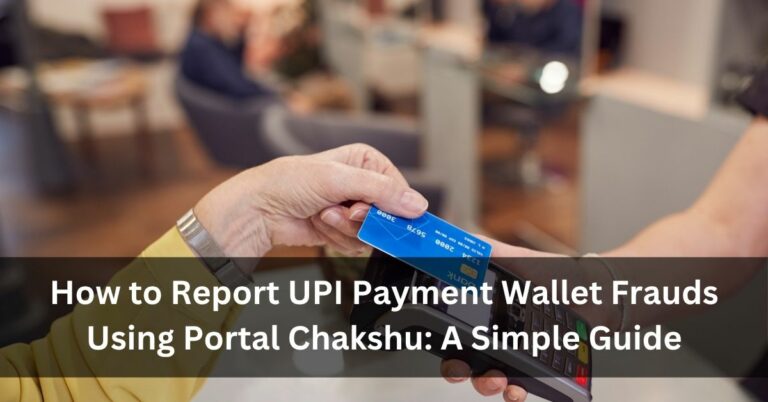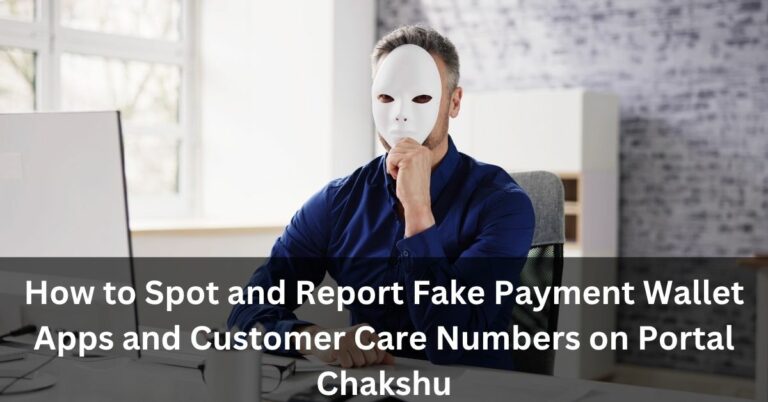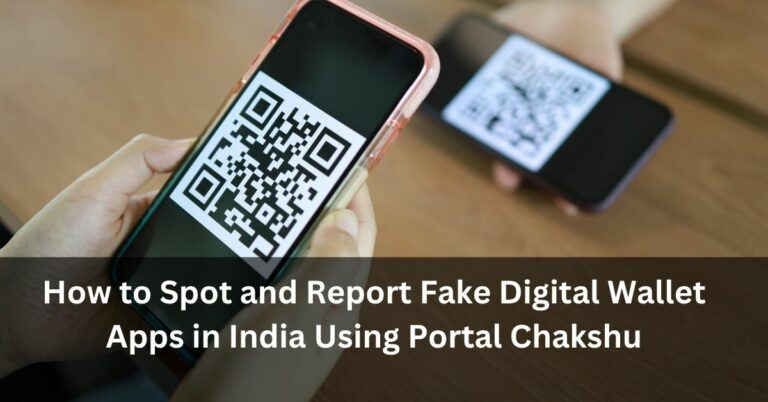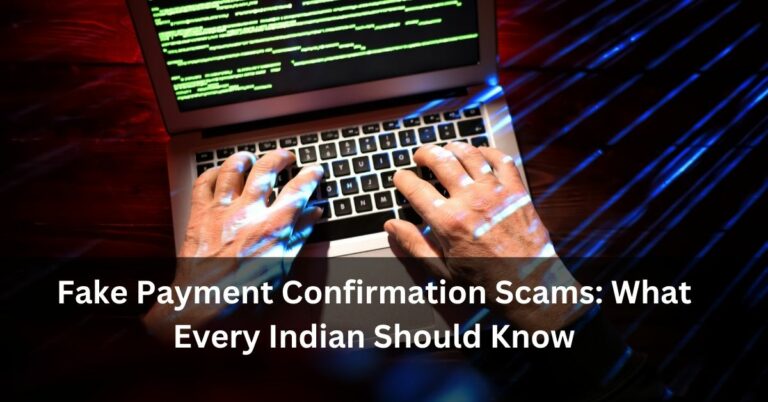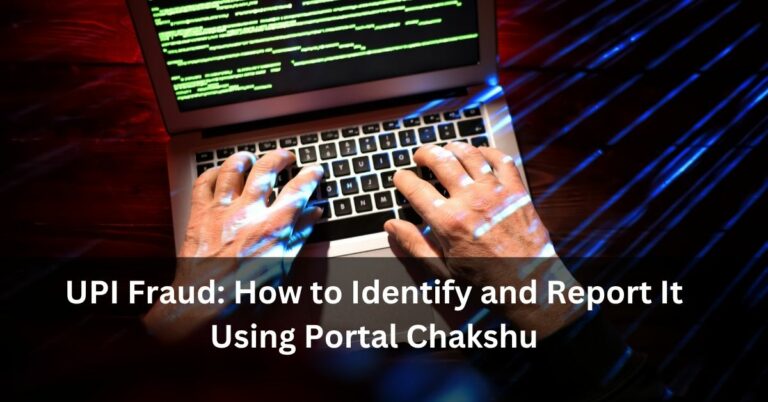Voice and In-Car Payment Scams: Know the Tricks and Stay Safe with Portal Chakshu
In the past few years, digital payments in India have grown very fast. From buying groceries to paying bills, most people now use UPI apps like PhonePe, Paytm, Google Pay, and others. Some people are also starting to use voice commands or even their car systems to make payments.
While this sounds simple and quick, it has also created new ways for fraudsters to cheat people. A growing number of scams are happening through phone calls and through payment wallets used in vehicles. Knowing how these scams work can help you avoid losing your hard-earned money.
That’s why it’s important to talk about this topic in plain words — and to remind everyone that help is available at Portal Chakshu.
What Are Voice Payment Scams?
Voice payment scams usually start with a phone call. The person calling may say they are from your bank, a government office, or even someone you know. In many cases, they try to scare you by saying there is an issue with your wallet or your account.
In one case, a 72-year-old man in Lucknow got a call from someone who sounded like his friend. The caller said it was an emergency and needed money fast. Believing it was real, the man sent money through UPI and lost over ₹80,000.
Fraudsters now use voice-changing tools that make their voices sound familiar. Some even copy the voices of known people. This makes the scam look very real.
Signs You Should Not Ignore
These are some common signs of a voice scam:
- The caller talks fast and keeps you under pressure.
- They ask you to share your UPI PIN, OTP, or full phone access.
- The voice may sound like someone you know, but the request feels strange.
- They tell you to scan a QR code or click a link immediately.
The best thing to do is hang up and not respond. Then report the call using Portal Chakshu.
In-Car Payment Wallet Scams: What You Need to Know
In-car payment scams are another new trick used by fraudsters. These happen when people pay using their wallet app while traveling in an auto, taxi, or car that has smart systems.
A recent case from Mumbai showed how this works. A legal executive handed his phone and GPay PIN to an auto driver for payment. Minutes later, ₹90,000 was gone from his account.
There are also scams involving fake QR codes. Some shops have seen fraudsters stick their own QR code on top of the real one. When a customer scans it, the money goes to the scammer.
This has happened in many cities, including Jaipur, where police had to issue alerts to shopkeepers.
How Can You Stay Safe?
You don’t need any special tools to stay safe. Just follow a few simple habits:
- Never share your PIN or OTP – not even with people who say they are from a bank.
- Don’t give your phone to strangers – even for a quick payment.
- Always check QR codes – see if it looks tampered or pasted over.
- Use voice alerts in your app – many apps now say the payment amount aloud after every transaction.
- Report anything suspicious – don’t wait or feel shy.
What is Portal Chakshu?
Portal Chakshu is a digital platform under the Sanchar Saathi initiative by the Indian government. It is created to help citizens report fake calls, SMS, WhatsApp messages, and payment scams.
It’s easy to use, even if you are not very good with technology.
Here’s how to use it:
- Visit Portal Chakshu.
- Click on “Report a Fraud” or similar option on the homepage.
- Choose how the fraud happened — via call, message, or QR code.
- Enter the number and a short detail about the scam.
- Submit your phone number and verify with OTP.
- That’s it — your report is sent to the right team.
Why Reporting Matters?
You may think reporting won’t change anything, but it does. When many people report similar scams, the government and banks can take quick action. Phone numbers can be blocked. Fake websites and links can be taken down.
By reporting on Portal Chakshu, you are not only helping yourself but also others who may become targets later.
What the Government and Police Are Doing?
In many cities, police have already taken steps. Warnings about fake QR codes are being put up. Banks are sending alerts to their customers. Apps are also being updated with more safety features like payment voice alerts, app locks, and fraud detection.
But even with all this, your personal awareness is the first and best defence. One wrong click or call can cost you a big amount. So stay alert and stay updated.
Final Words
Payment wallets are easy and fast. But don’t let that ease make you careless. Scammers are trying new tricks like voice frauds and in-car scams to fool innocent people.
Remember, a few seconds of attention can save you from a huge loss.
Use your wallet apps carefully. Don’t fall for pressure tactics on the phone. Check every QR code before scanning. And if something does not feel right, report it immediately using Portal Chakshu.
Keep checking Portal Chakshu for updates, tips, and alerts. Share it with family members and friends. It can make a big difference.
Let’s use payment wallets smartly. Let’s stay safe.

